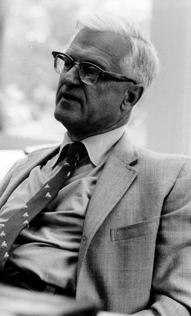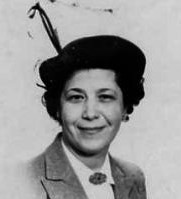Related Research Articles

Anthropology is the scientific study of humanity, concerned with human behavior, human biology, cultures, societies, and linguistics, in both the present and past, including past human species. Social anthropology studies patterns of behaviour, while cultural anthropology studies cultural meaning, including norms and values. A portmanteau sociocultural anthropology is commonly used today. Linguistic anthropology studies how language influences social life. Biological or physical anthropology studies the biological development of humans.

Biological anthropology, also known as physical anthropology, is a scientific discipline concerned with the biological and behavioral aspects of human beings, their extinct hominin ancestors, and related non-human primates, particularly from an evolutionary perspective. This subfield of anthropology systematically studies human beings from a biological perspective.

Human ecology is an interdisciplinary and transdisciplinary study of the relationship between humans and their natural, social, and built environments. The philosophy and study of human ecology has a diffuse history with advancements in ecology, geography, sociology, psychology, anthropology, zoology, epidemiology, public health, and home economics, among others.

Donna J. Haraway is an American Professor Emerita in the History of Consciousness Department and Feminist Studies Department at the University of California, Santa Cruz, United States. She is a prominent scholar in the field of science and technology studies, described in the early 1990s as a "feminist and postmodernist". Haraway is the author of numerous foundational books and essays that bring together questions of science and feminism, such as "A Cyborg Manifesto: Science, Technology, and Socialist-Feminism in the Late Twentieth Century" (1985) and "Situated Knowledges: The Science Question in Feminism and the Privilege of Partial Perspective" (1988). Additionally, for her contributions to the intersection of information technology and feminist theory, Haraway is widely cited in works related to Human-Computer Interaction (HCI). Her Situated Knowledges and A Cyborg Manifesto publications in particular, have sparked discussion within the HCI community regarding framing the positionality from which research and systems are designed. She is also a leading scholar in contemporary ecofeminism, associated with post-humanism and new materialism movements. Her work criticizes anthropocentrism, emphasizes the self-organizing powers of nonhuman processes, and explores dissonant relations between those processes and cultural practices, rethinking sources of ethics. Haraway criticizes the Anthropocene because it generalizes us as a species. However, she also recognizes the importance of it recognizing humans as key agents. Haraway prefers the term Capitalocene which defines capitalism's relentless imperatives to expand itself and grow, but she does not like the theme of irreversible destruction in both the Anthropocene and Capitalocene.

The American Association for the Advancement of Science (AAAS) is an American international non-profit organization with the stated goals of promoting cooperation among scientists, defending scientific freedom, encouraging scientific responsibility, and supporting scientific education and science outreach for the betterment of all humanity. It is the world's largest general scientific society, with over 120,000 members, and is the publisher of the well-known scientific journal Science.
The Anthropocene is a proposed geological epoch dating from the commencement of significant human impact on Earth's geology and ecosystems, including, but not limited to, anthropogenic climate change.

The Harriet L. Wilkes Honors College is an academic, residential college of Florida Atlantic University at the John D. MacArthur campus in Jupiter, Florida. The college opened in 1999 and offers a liberal arts education through the platform of a public institution, with a focus on interdisciplinary studies. It features a student body of 500 and 32 full-time tenured and tenure-track faculty, all of whom have terminal degrees in their field. On July 1, 2020, Justin Perry began serving as dean.
Richard Allan Shweder is an American cultural anthropologist and a figure in cultural psychology. He is currently Harold H. Swift Distinguished Service Professor of Human Development in the Department of Comparative Human Development at the University of Chicago.

Sherwood Larned Washburn, nicknamed "Sherry", was an American physical anthropologist, and "a legend in the field." He was pioneer in the field of primatology, opening it to the study of primates in their natural habitats. His research and influence in the comparative analysis of primate behaviors to theories of human origins established a new course of study within the field of human evolution. He changed the field of anthropology forever and for the better with the publication of his paper The New Physical Anthropology, in 1951, in which he argued, convincingly, that human variation was continuous, and could not be broken up into discontinuous races.

Robin Fox is an Anglo-American anthropologist who has written on the topics of incest avoidance, marriage systems, human and primate kinship systems, evolutionary anthropology, sociology and the history of ideas in the social sciences. He founded the department of anthropology at Rutgers University in 1967 and had remained a professor there for the rest of his career, also being a director of research for the H. F. Guggenheim Foundation from 1972 to 1984.

Christoph Wulf is a professor of Anthropology and Education at the Free University of Berlin.

Rangwapithecus is an extinct genus of ape from the Early Miocene of Kenya. Late Miocene phalanges from Hungary have also been assigned to this genus, but were later reclassified as Dryopithecus.

Nina G. Jablonski is an American anthropologist and palaeobiologist, known for her research into the evolution of skin color in humans. She is engaged in public education about human evolution, human diversity, and racism. In 2021, she was elected to the U.S. National Academy of Sciences and in 2009, she was elected to the American Philosophical Society. She is an Evan Pugh University Professor at The Pennsylvania State University, and the author of the books Skin: A Natural History, Living Color: The Biological and Social Meaning of Skin Color, and the co-author of Skin We Are In.
Anna Lowenhaupt Tsing is an American anthropologist. She is a professor in the Anthropology Department at the University of California, Santa Cruz. In 2018, she was awarded the Huxley Memorial Medal of the Royal Anthropological Institute.
Lynn K. Nyhart is the Vilas-Bablitch-Kelch Distinguished Achievement Professor in the Department of the History of Science at the University of Wisconsin–Madison. She served as president of the History of Science Society from 2012 to 2013. Her main areas of interest are the history of biology, international transfer of ideas, relations between elite and popular science, and theories of individuality, parts, and wholes. Her book Modern Nature: The Rise of the Biological Perspective in Germany received the Susan E. Abrams Prize in 2009.
Robert Wald Sussman was an American anthropologist and professor at Washington University in St. Louis. His research concerned the evolution of primate and human behavior, and he was interested in race as a social construct. He was a fellow of the American Association for the Advancement of Science.

Pearl Kibre was an American historian. She won a Guggenheim Fellowship in 1950 for her work on medieval science and universities.
Dorothy Leavitt Cheney was an American scientist who studied the social behavior, communication, and cognition of wild primates in their natural habitat. She was Professor of Biology at the University of Pennsylvania and a member of both the US National Academy of Sciences and the American Academy of Arts and Sciences.

Anne C. Stone is an American anthropological geneticist and a Regents' Professor in the School of Human Evolution and Social Change at Arizona State University. Her research focuses on population history and understanding how humans and the great apes have adapted to their environments, including their disease and dietary environments. Stone is a Fellow of the American Association for the Advancement of Science and a Member of the National Academy of Sciences.
References
- ↑ "Scientists Seeking Link with New Methods". Gadsden Times . 20 July 1971. p. 3.
- ↑ "Fingers Indicate Man Didn't Descent from Tree Swingers". Oxnard Press-Courier . 18 July 1969. p. 11.
- ↑ Harper, Kyle; Nyhart, Lynn; Radin, Joanna; Tuttle, Russell; Thomas, Julia; Lyon, Jonathan (2016). ""Bio-History in the Anthropocene: Interdisciplinary Study on the Past and Present of Human Life"". Chicago Journal of History (7): 10.
- ↑ Choi, Charles Q. (9 October 2007). "Human Ancestors Walked Upright, Study Claims". LiveScience . Retrieved 10 January 2020.
- ↑ "SCIENCE WATCH; The Upright Primates". The New York Times . 3 August 1982. p. C4.
- ↑ "Russell H. Tuttle". John Simon Guggenheim Memorial Foundation. Retrieved January 9, 2020.
- ↑ Steve Koppes (November 6, 2003). "Nine on faculty elected 2003 AAAS fellows". University of Chicago Chronicle. Vol. 78, no. 4.